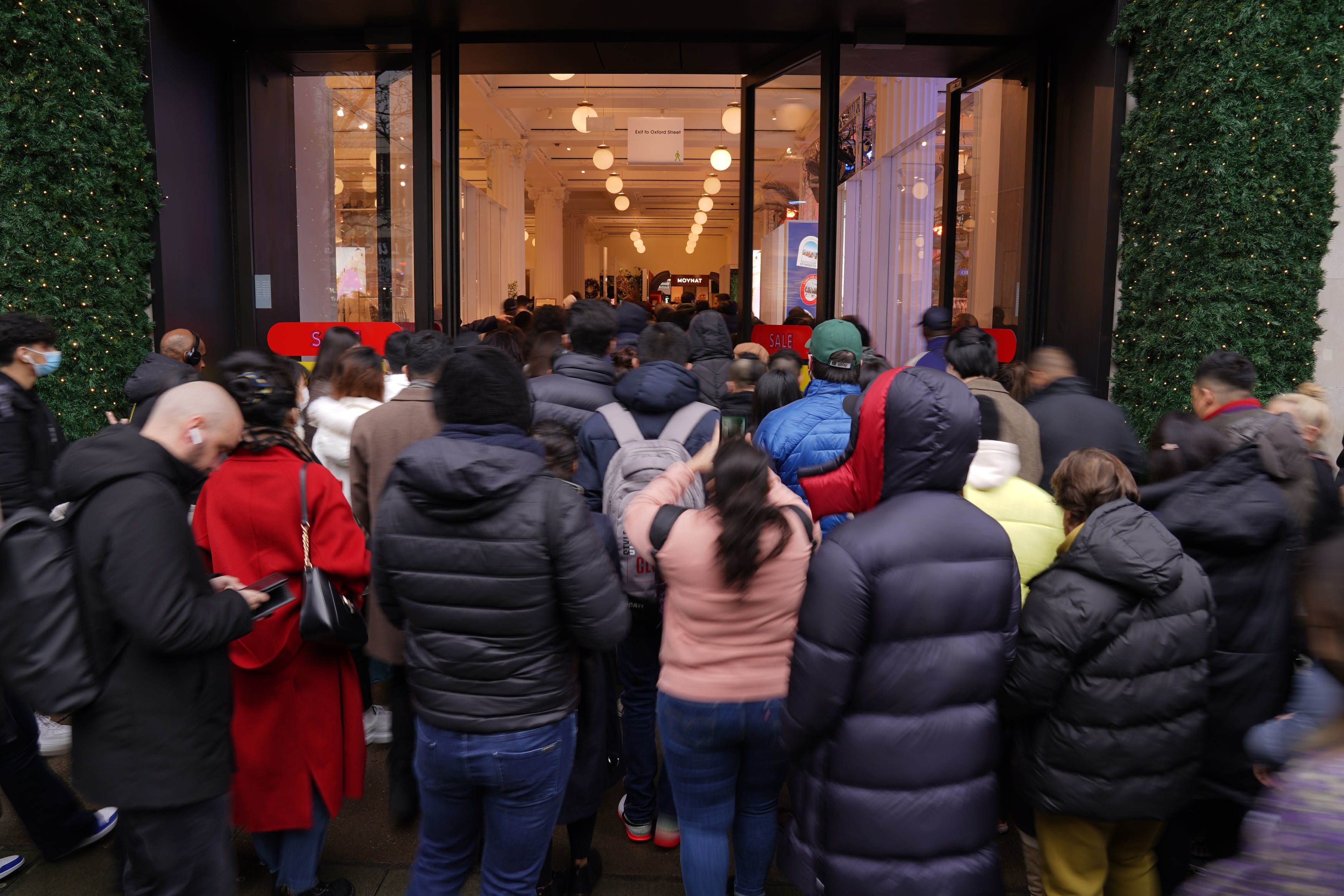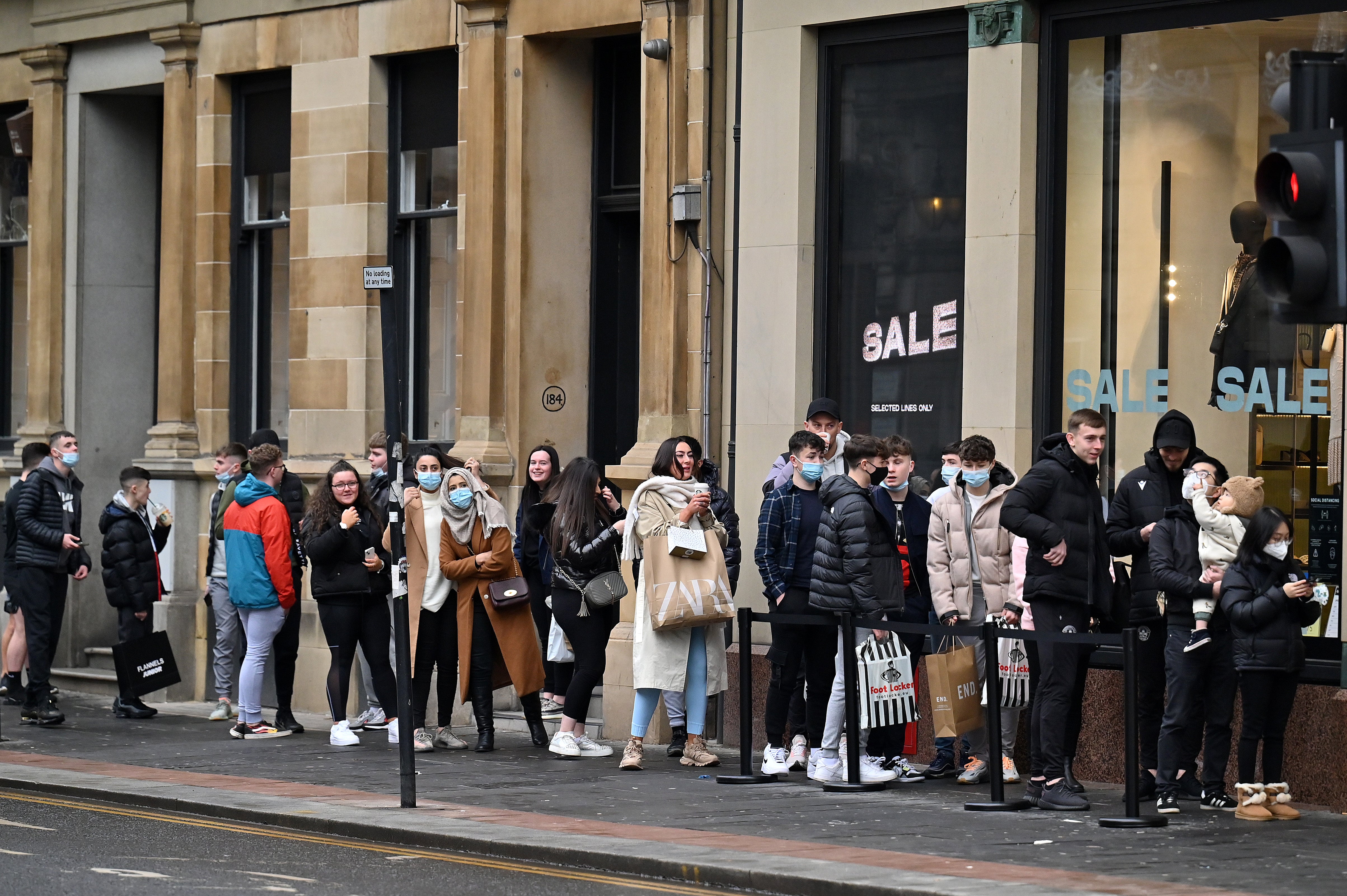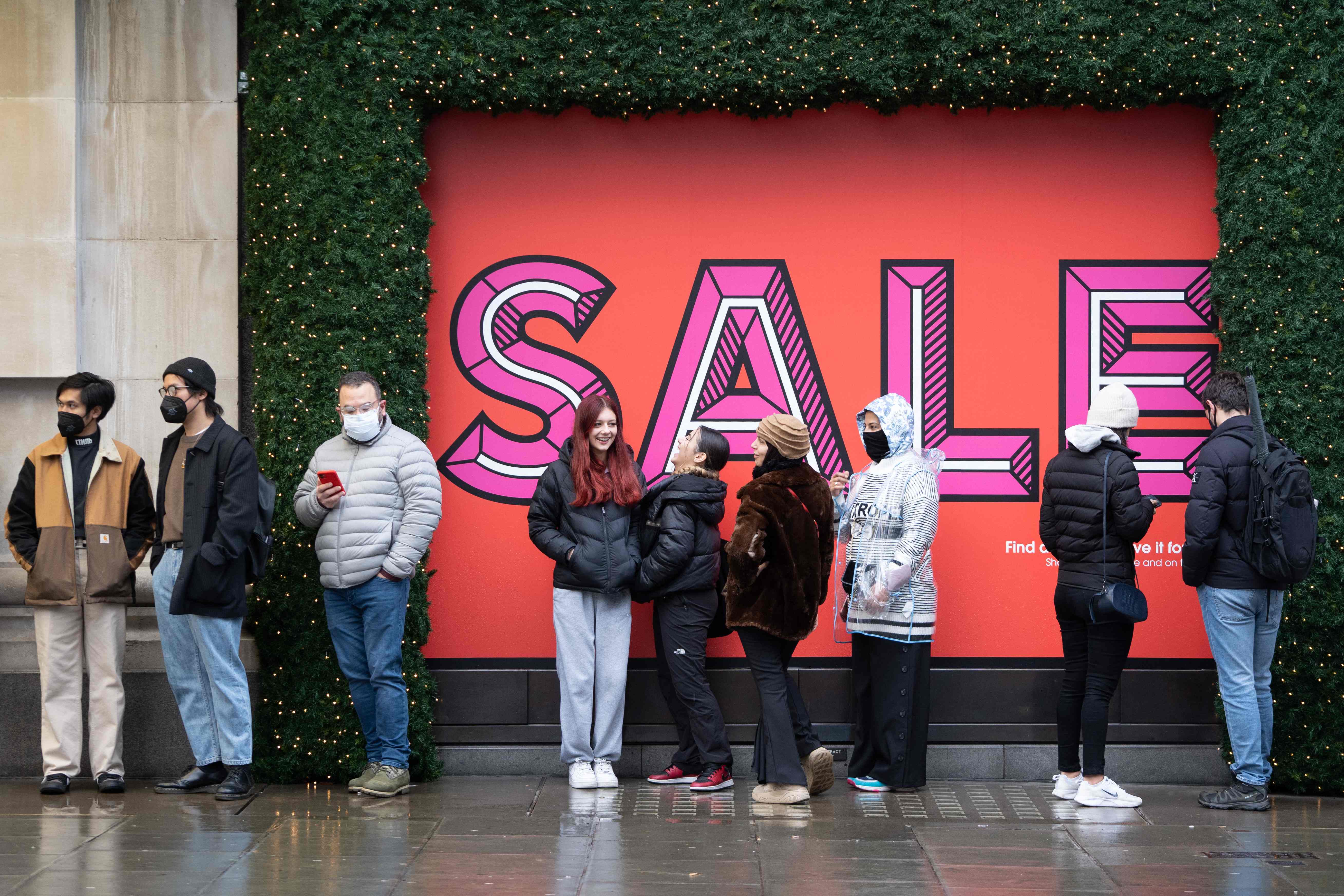Thousands descend on shops for Boxing Day bargains - but footfall drops by 50% amid Omicron surge
Central London bears the brunt of consumer habits as shop visitors drop down to 67 per cent on pre-pandemic levels

Thousands of shoppers descended on stores across the UK today to take advantage of the Boxing Day sales, but footfall plummeted by 45 per cent on pre-pandemic levels amid a surge in Covid cases.
Rising Omicron infections and the re-introduction of Covid restrictions in Wales, Scotland and Northern Ireland are believed to have impacted the number of shoppers attending the sales this year.
Despite pictures of crowds queueing up at shops in London on Sunday morning, footfall at shopping destinations across the UK up to midday was 45 per cent below the 2019 level, according to data from retail expert Springboard.

Diane Wehrle, insights director at Springboard, said: “A major reason for the significantly lower footfall compared with 2019 will be due to consumers’ ongoing nervousness about the Covid infection rate.”
She added: “This will have been compounded by the fact that a few multiple retailers opted not to open today, which will have deterred some shoppers. In addition, Sunday generally has the lowest footfall on any day in the week, so a comparison with 2019 when Boxing Day fell on a Thursday will always have meant that footfall would be lower than two years ago.”
Central London was the area most impacted, with visitor numbers down 67 per cent than 2019 pre-pandemic levels, while it was 58 per cent below 2019 in other major UK cities.
Market towns were slightly better off this year, seeing a 12 per cent decrease from 2019 shopping traffic, while there was only a seven per cent drop in outer London.
Footfall in Northern Ireland was 73 per cent below the 2019 level, 63 per cent lower in Wales, and almost 50 per cent lower in Scotland.
Covid restrictions deterred the public from going to physical shops, according to a poll of 2,000 shoppers conducted on behalf of Barclaycard. The credit card operator revealed that as many as 40 per cent of consumers would shop online instead to avoid queues and crowded areas.
Despite the concerns, large queues formed outside Selfridges, Boots, Primark, Disney and Zara in Oxford Street, London.

Queueing outside the Disney store in Oxford Street, London to shop on her daughter’s behalf, Nic Portway from London told the PA news agency she was not planning on spending much in the sales but was happy to still go to the shops in person despite the rise in Covid cases.
She said: “I am not really surprised by how many people are out because we have got to get on with it, there is always going to be another variant so what do we do?
“We can’t keep locking down every time there is a new variant otherwise everything will just stop.”
Another shopper said she only came out on Boxing Day because her planned Christmas Day online shopping at Zara fell through due to an error on the app.
The woman said: “I was surprised to see this many people out and about, when I walked down Oxford Circus there was hardly anyone around, but then when I arrived at Oxford Street there were big queues, all around the corners.”
Bargain hunters also rushed to queue outside Manchester’s Trafford Centre, with some shoppers waiting since 8am.
A spokesperson for the Trafford Centre said: “Going shopping on Boxing Day is a yearly tradition for many with people looking to pick up some great deals from one of our many brands and enjoy a day out of the house.”
They added: “Although Boxing Day this year falls on a Sunday we’ve had a steady stream of visitors to Trafford Centre regardless of the shorter trading hours. We expect to see plenty of interest in the sales period throughout the week ahead, with Monday 27 December being a priority for retailer promotions.”
With the push to buy online, shoppers are expected to spend an average of £247 each at the end-of-year sales. That is an increase of £85 in 2020 and £61 more than in 2019.
Join our commenting forum
Join thought-provoking conversations, follow other Independent readers and see their replies
Comments
Bookmark popover
Removed from bookmarks